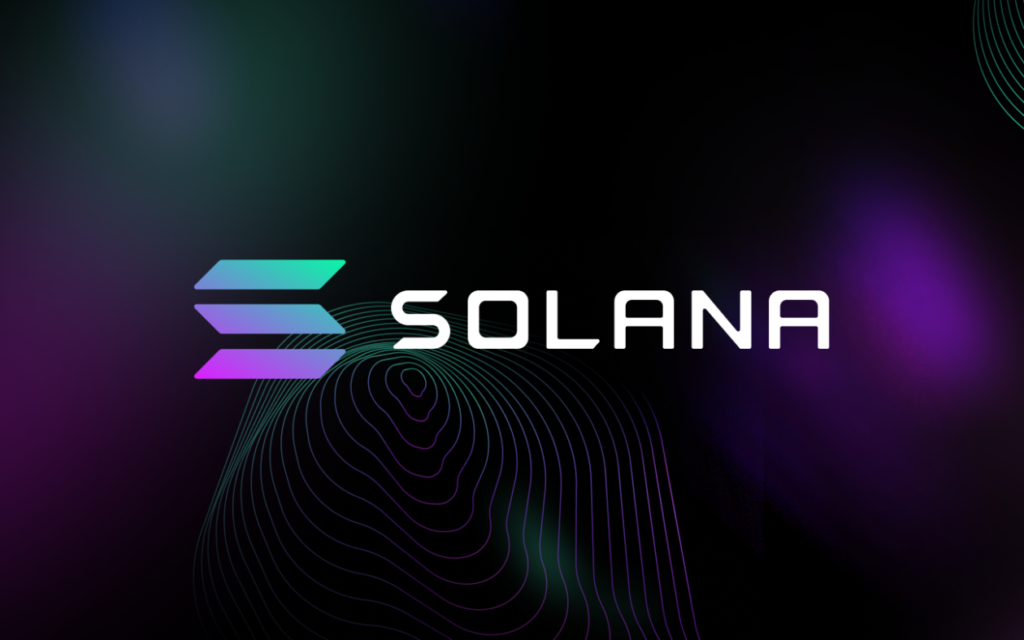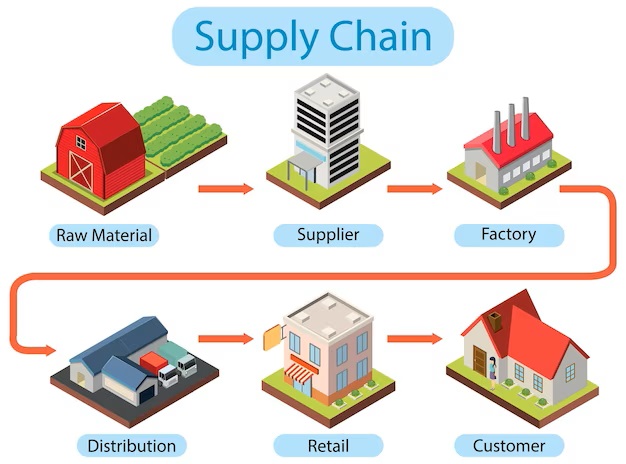Add Your Heading Text Here
Solana Blockchain: A Viable Solution for Dispensaries
Solana's high-performance, open-source blockchain platform offers fast & secure decentralized applications (dApps).
In recent years, the cannabis industry has experienced significant growth, with the legalization of medical and recreational marijuana in several states across the United States. However, despite the increasing acceptance, dispensaries still face numerous challenges, including regulatory compliance, financial
services, and supply chain management.
At the same time, blockchain technology has emerged as a revolutionary concept with the potential to transform various industries, offering transparency, security, and decentralized control. One sector that stands to benefit greatly from this technology is the legal cannabis industry, particularly dispensaries in the United States. With the legalization of marijuana for medical and recreational use in many states, dispensaries face unique challenges related to compliance, security, and transparency. This exposé aims to explore how Solana blockchain technology can serve as a viable solution for dispensaries in the United States, addressing these critical issues and revolutionizing the industry.

In recent years, the cannabis industry has experienced significant growth, with the legalization of medical and recreational marijuana in several states across the United States. However, despite the increasing acceptance, dispensaries still face numerous challenges, including regulatory compliance, financial services, and supply chain management.
At the same time, blockchain technology has emerged as a revolutionary concept with the potential to transform various industries, offering transparency, security, and decentralized control. One sector that stands to benefit greatly from this technology is the legal cannabis industry, particularly dispensaries in the United States. With the legalization of marijuana for medical and recreational use in many states, dispensaries face unique challenges related to compliance, security, and transparency. This exposé aims to explore how Solana blockchain technology can serve as a viable solution for dispensaries in the United States, addressing these critical issues and revolutionizing the industry.

Understanding Blockchain Technology
To grasp the potential of blockchain technology for dispensaries, it is crucial to understand its fundamental concepts. At its core, a blockchain is a decentralized and distributed ledger that securely records and verifies transactions across multiple nodes or computers. Each transaction, or block, is cryptographically linked to the preceding block, creating an immutable chain of data. Some key features of blockchain include transparency, security, decentralization and immutability, but the ongoing challenges of scalability and performance when integrated with other systems- still remain. Yet Solana, a relatively new blockchain platform, has emerged as a game-changer in the blockchain space by tackling these critical issues of scalability and performance head-on…

Understanding the Challenges
Regulatory Compliance
Dispensaries operating in the legal cannabis industry face numerous regulatory requirements to ensure accountability, traceability, and legality. Blockchain technology can assist dispensaries in meeting these obligations effectively. By leveraging blockchain’s transparent nature and cryptographic security, dispensaries can maintain a tamper-proof record of their supply chain, including the sourcing, transportation, and sale of cannabis products. This ensures compliance with regulations and prevents unauthorized access or modification of sensitive data. Since dispensaries operate in a heavily regulated environment, these organazations face stringent compliance requirements. State authorities require accurate and transparent reporting of sales, taxes, and inventory. Failure to meet these obligations can lead to severe penalties and even the revocation of licenses. Traditional systems often struggle to meet these demands, resulting in manual errors, data discrepancies, and increased compliance costs.

Financial Services
Due to the legal status of marijuana at the federal level, dispensaries often face challenges with banking and payment processing services. Many traditional financial institutions refuse to work with cannabis-related businesses, leading to a predominantly cash-based industry. Blockchain-based cryptocurrencies, such as Bitcoin, Ethereum and Solana provide an alternative payment solution.
By accepting cryptocurrencies, dispensaries can streamline transactions, reduce reliance on cash, and mitigate security risks associated with handling large sums of money. Due to the federal illegality of marijuana, dispensaries struggle to access traditional banking services. This forces them to operate in cash, which poses security risks and operational inefficiencies. Dispensaries need a reliable and secure financial infrastructure that allows seamless transactions, compliance with tax obligations, and facilitates the growth of the industry.
Supply Chain Management
Efficient supply chain management is vital for dispensaries to ensure product quality, safety, and customer satisfaction. Blockchain technology can revolutionize supply chain management by providing a decentralized, transparent, and real-time view of the entire process. By recording each step, from cultivation and harvesting to distribution and sale, on the blockchain, dispensaries can trace the origin of products, verify their quality, and track their movement through the supply chain.
This level of transparency enhances consumer trust and reduces the risk of fraud or counterfeit products entering the market. Ensuring the integrity and transparency of the cannabis supply chain is crucial. Dispensaries need to track and trace products from cultivation to point of sale to verify their authenticity, quality, and compliance. This becomes increasingly complex as the industry expands and crosses state borders. Existing supply chain systems often lack interoperability, making it challenging to maintain transparency and streamline operations.

Solana Blockchain Technology
Overview of Solana
Solana is a high-performance, open-source blockchain platform that offers fast and secure decentralized applications (dApps). Its unique architecture, built on a proof-of-history consensus mechanism, enables rapid transaction processing, scalability, and low-cost operations. Solana employs a unique consensus mechanism called Proof of History (PoH) alongside Proof of Stake (PoS). PoH timestamps each transaction and produces a historical record that enables nodes to agree on the order of events without the need for costly consensus rounds. This innovative approach drastically reduces latency and improves the overall efficiency of the network.
At the core of Solana’s architecture is a network of nodes called the Solana Cluster. This cluster is responsible for processing transactions, maintaining the blockchain ledger, and reaching consensus. The Solana Cluster consists of four key components: Validators, Replicas, Archivers, and Clients. Validators verify transactions, replicas store and maintain the blockchain state, archivers store historical data, and clients interact with the network. Solana’s features make it an ideal candidate for addressing the challenges faced by dispensaries in the United States.

Regulatory Compliance with Smart Contracts
Blockchain technology enables the use of smart contracts, self-executing agreements that automatically execute contractual conditions. Dispensaries can utilize smart contracts to automate various processes, such as supply chain agreements, licensing, and regulatory compliance. This automation reduces human error, minimizes administrative costs, and improves efficiency. For instance, smart contracts can automatically verify customer age, track inventory, and trigger alerts for product restocking. Smart contracts, programmable self-executing agreements, can revolutionize regulatory compliance in the cannabis industry. By leveraging Solana’s blockchain, dispensaries can create smart contracts that automate compliance reporting, tax calculations, and inventory management. These contracts can ensure accurate, immutable, and transparent record-keeping, reducing manual errors and compliance costs.
Financial Infrastructure
Solana’s blockchain can provide dispensaries with a secure and efficient financial infrastructure. By utilizing Solana’s native cryptocurrency, SOL, dispensaries can facilitate seamless and instant transactions between suppliers, customers, and other stakeholders. Additionally, Solana’s integration with decentralized finance (DeFi) protocols enables dispensaries to access financial services such as lending, liquidity provision, and yield farming, unlocking new avenues for growth.

Supply Chain Transparency
Solana’s blockchain technology offers enhanced supply chain management capabilities for dispensaries. Through the use of non-fungible tokens (NFTs) and unique identifiers, each cannabis product can be assigned a digital identity, allowing for real-time tracking and tracing throughout the supply chain. Dispensaries can verify the authenticity, quality, and compliance of products, promoting consumer trust and ensuring regulatory compliance.

Benefits and Opportunities
Enhanced Efficiency & Cost Reduction
By leveraging Solana blockchain technology, dispensaries can streamline their operations, reduce manual processes, and eliminate intermediaries. This results in enhanced efficiency, reduced administrative costs, and increased profitability. Automating compliance reporting, financial transactions, and supply chain management can free up valuable resources, allowing dispensaries to focus on providing quality products and services to their customers.
Secure & Transparent Transactions
Dispensaries handle sensitive data, including patient information and financial transactions, making security and privacy critical concerns. Blockchain technology offers robust security measures through cryptographic hashing and consensus mechanisms. With data stored across multiple nodes, it becomes extremely challenging for hackers to compromise the system.
Moreover, blockchain’s permissions of private variants allow dispensaries to control access to sensitive information, ensuring data privacy while meeting regulatory requirements. Solana’s blockchain offers secure and transparent transactions, mitigating risks associated with cash-based operations. Dispensaries can conduct business with confidence, knowing that transactions are recorded on an immutable ledger, reducing the potential for fraud and theft. Furthermore, the transparency provided by Solana’s blockchain enhances consumer trust, fostering long-term relationships with customers.

Innovation & Integration Opportunities
Solana’s compatibility with other blockchain networks and its vibrant developer community create opportunities for innovation and integration within the cannabis industry. Dispensaries can explore collaborations with technology providers to develop custom dApps, tailored to their specific needs. This opens the door for novel solutions in areas such as loyalty programs, customer data management, and product authentication.

The cannabis industry in the United States is poised for continued growth, but dispensaries face numerous challenges in regulatory compliance, financial services, and supply chain management. By leveraging blockchain’s transparency, security, decentralization, and automation, dispensaries can address compliance challenges, improve supply chain management, enhance security and data privacy, explore alternative payment methods, and streamline operations. As this technology continues to evolve, it is essential for dispensaries to explore and embrace blockchain solutions to gain a competitive edge in an increasingly regulated and dynamic market.
Segueing to Solana, this specific blockchain offers a viable solution to these issues, enabling dispensaries to automate compliance reporting, establish a secure financial infrastructure, and enhance supply chain transparency. By leveraging Solana’s unique features, dispensaries can unlock new opportunities for efficiency, cost reduction, and innovation, driving the industry forward and transforming the way cannabis businesses operate in the United States.
